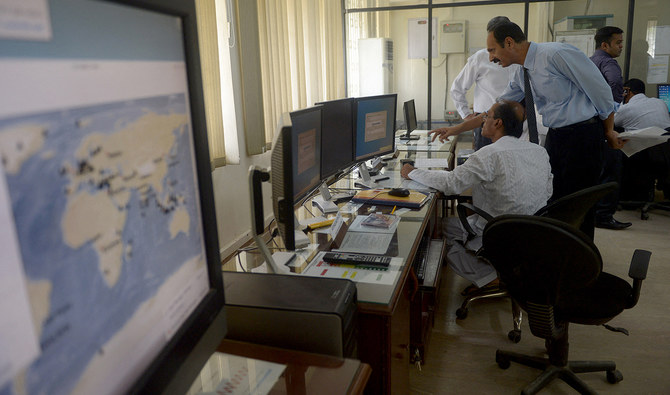ISLAMABAD: Pakistani weather bureaus and the meteorology department in the United Arab Emirates (UAE) have signed an agreement to cooperate on improving their respective capabilities in the fields of seismology and meteorology and set up a monitoring and data-sharing system to cover a range of climate disasters, particularly earthquakes and tsunamis, a senior official at the Pakistan Meteorological Department (PMD) said this week.
UAE’s National Center of Meteorology (NCM) director, Dr. Abdullah Ahmed Al Mandoos, and PMD Director-General Mahr Sahibzad Khan signed a Letter of Agreement earlier this month on the sidelines of the World Meteorological Organization (WMO) regional conference in Abu Dhabi.
Last year’s heatwave and devastating floods in Pakistan were a stark reminder that climate change-induced disasters can significantly set back the country’s development ambitions and its ability to reduce poverty. The disasters caused more than 1,700 deaths and displaced more than 8 million people, with more than $30 billion in damages and economic losses. Last week, a 6.5-magnitude earthquake killed at least 10 people and injured over 60 in Pakistan’s northwestern Khyber Pakhtunkhwa province.
In the UAE, the continuing rise in temperatures caused by global warming contributes to water scarcity, drought and a rising sea level in the Gulf of Oman. The Gulf nation, with infrequent precipitation and high temperatures, also faces long-term aridity.
“Pakistan and the UAE recently signed a Letter of Agreement to enhance our seismology and meteorology capabilities,” Zahid Rafi, a director at PMD’s Seismology Division, who was the focal person from Pakistan at the WMO conference, told Arab News.
“Under the agreement, we will link all our stations with the UAE through satellite in the next two weeks and our technical teams are working together to connect both countries’ stations.”
“The cooperation between the two countries will extend to a range of areas, including marine meteorological services, hydrology, flood forecasting, seismology, and scientific research aimed at better understanding of the potential for seismic activities to generate tsunamis in the Arabian Sea and the Sea of Oman,” Rafi added.
Through the cooperation, both countries will establish a multi-hazard system that would be “particularly advantageous for Pakistan,” given the intensity of climate-related activities in the region, the PMD director said. The project would cover various climatic hazards, such as sudden rains leading to flooding and earthquakes as well as their impact on the sea.
Rafi said Pakistan and the UAE would work to develop specialized capacities for tsunami research through round-the-clock exchange of seismic data, which would be integrated with weather data to enable faster and more reliable forecast of tsunamis in the Gulf of Oman, potentially affecting coastal areas in Pakistan and the northeast of the UAE.
The collaborative efforts would also enhance technical cooperation and expertise exchange by providing support to the Tsunami Early Warning Centers (TEWC) of Pakistan and the UAE through advanced forecast modeling software, specifically designed to support tsunami forecast operations.
The agreement between Pakistan and the UAE is based on a mechanism established between Pakistan and Oman in 2015 under which the two countries share data and other information to improve safety through better monitoring.
“Oman has developed a system on the coastal line of their sea, which is quite close to our Gwadar and Makran coast which is a hazard-related system, like a tsunami caused by an earthquake in the sea, or a large wave that comes and is not detected, causing problems for sea vessels,” Rafi said.
Both countries began data sharing to improve monitoring on the economically vital route, he added.
Seeing the success of the cooperation, the official said, the UAE’s National Center of Meteorology contacted the Pakistan government and requested establishing a similar data-sharing system to monitor meteorological and seismic hazards in the region.
As per the agreement, Rafi said, Pakistan and the UAE would have access to each other’s data and remain in constant contact to increase the capability and coverage of their respective networks.
“The project involves not just data sharing but also technical cooperation and whenever we need anything, they will provide it to us, and if they need anything from us, we will provide it to them,” Rafi said.
UAE’s National Center of Meteorology could not be reached for comment.


















